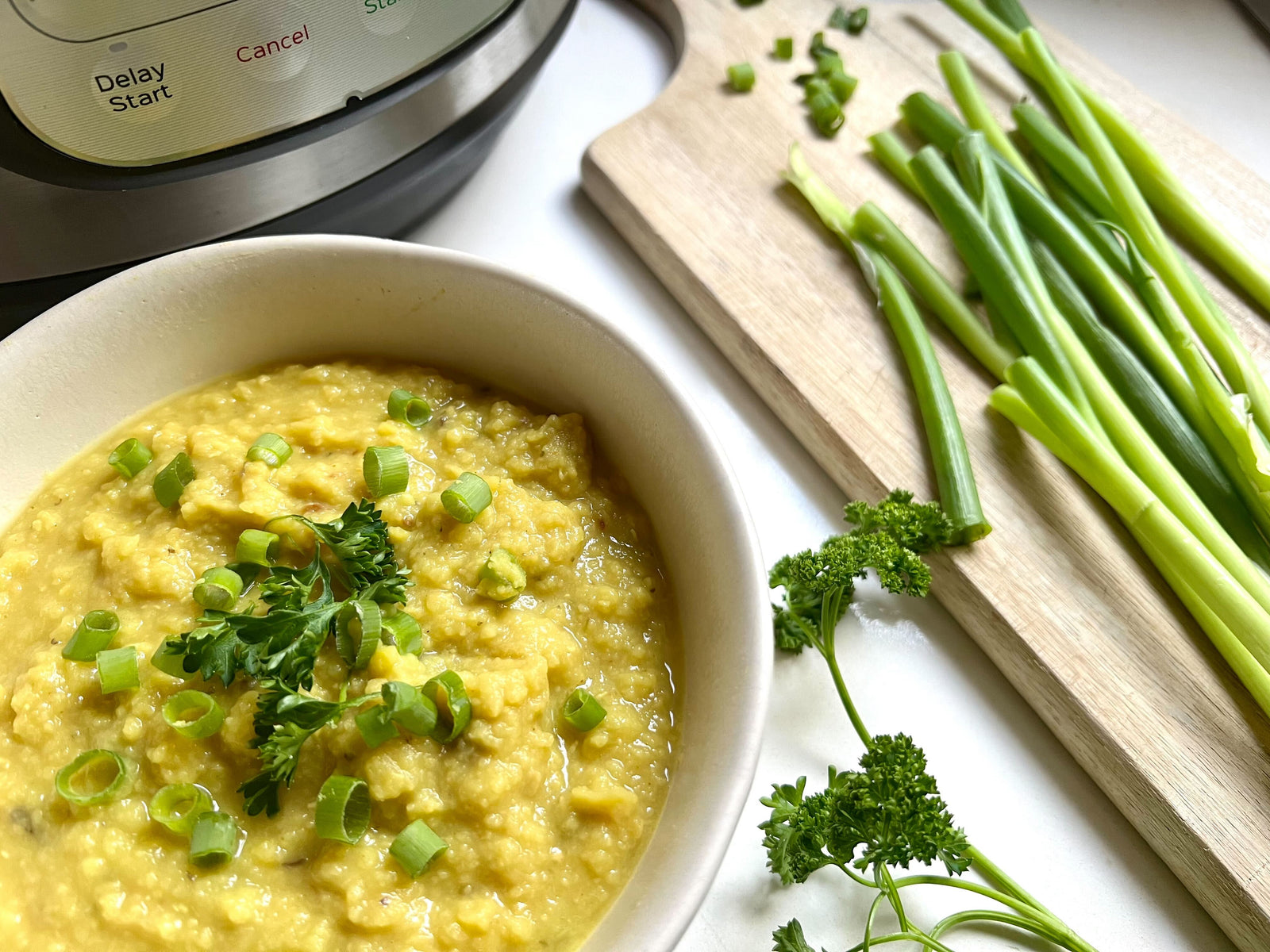How To Make Recipes Healthier

You can make any of your favorite recipes healthy and easy! Here’s how to get started.
Choose Organic*, High Quality Ingredients
All ingredients should be organic, free of refined inflammatory oils, harmful chemicals like dyes, preservatives, natural flavors, and excitotoxins.
Use salts like Premier Pink Salt, Celtic Salt, or Masu Sea Salt instead of common table salt which contains anti-caking chemicals and dextrose, a simple sugar.
*The same recipes made with conventionally grown ingredients put stress on the body. Pesticides are hormone disruptors, carcinogens, obesogens (make us gain weight regardless of diet and exercise), asthmagens, neurotoxins (influence our mood and mental well-being), and impact our digestion. Pesticides disrupt the microbiome and, therefore, our immunity. It has been demonstrated in studies and testing that a significant reduction of pesticides (including glyphosate) in the urine occurs in less than a week of eating all organic food.
Preparation and Cooking Methods
Cut down on preparation time using these tips!
- A good vegetable cutting knife makes such a difference! Use Youtube videos to teach you how to cut vegetables.
- Chop preparation time down even more with a mandolin. There are many options.
- Mise en Place before you start a recipe. Run through your ingredients and measure, cut, peel anything that needs to be prepped first. It will save you so much time once you start on a recipe!
- Batch cooking is a major time saver! Take a little more time to cook enough for freezing several meals to make healthy meal preparation easier when you don’t have time.
Certain preparation and cooking methods can enhance the flavor and nutritional value of the food. For example...
- Beans become more digestible when cooked properly.
- Optimize your use of Olive Oil! It’s best served at room temperature and can be used in cooking. Ideally only low heat.
- Organic refined olive oil is best for cooking/baking and the smoke point is 450 degrees.
- Organic virgin olive oil is semi refined and is for heating. But ideally, if used in cooking only expose to very low heat. The smoke point is 375 degrees.
- Organic extra virgin olive oil is more suitable for salads – not heating.
- Use an instant-read thermometer when cooking meat, poultry, fish. Learn proper cooking temperatures here.
- Practice intuitive cooking. Omit, add more or less of a particular ingredient to fit your taste.
- You can always add more seasonings as you go, but you can’t take it back once it’s done! Sometimes it’s best to add part of the seasonings and salt during different stages of your cooking and adjust to taste at the end.
- Instead of strictly following a recipe’s timing, don’t forget to use your own sense of smell, touch, and taste to determine if your dish is cooked properly.
- All ovens are different - trust your instincts and experience with your oven’s timing.
Packaging
Packaging matters! Buy fresh foods and foods that come in glass or nontoxic packaging.
For example, BPA is an endocrine disruptor found in the liner of canned foods. BPA-Free on a label typically means that there is no BPA, BUT a substitute bisphenol chemical like BPS is used which is just as bad or worse than BPA.
The canned beans we use and recommend (Eden Foods or Jovial) are soaked and pressure cooked. They come in truly BPA free cans or glass.
Eat Healthy, Live Healthy
As you can see, incorporating healthier ingredients and cooking techniques into your recipes is a small, yet powerful step you can take toward a healthier lifestyle.
By making mindful swaps -- choosing whole foods, reducing added sugars, and opting for healthier fats -- you're not only nourishing your body but also building habits that support long-term wellness.
And while you're on a health living kick, be sure to check out Branch Basics' human- and home-safe cleaning line.
Our Premium Starter Kits make it easy to clean your entire home without the use of synthetic chemicals. Each Starter Kit comes with our all-in-one Concentrate and refillable spray bottles to make All Purpose, Bathroom, Streak Free, Laundry, and Foaming Wash. We also include our super popular Oxygen Boost!
Cheers to eating and cleaning healthier!

Marilee Nelson
Marilee Nelson is an Environmental Toxins expert who has spent nearly 30 years advocating for the chemically-sensitive and chronically-ill. She is a Board Certified Nutritionist, Certified Bau-Biologist and Bau-Biology Inspector and specializes in Food As Medicine. She has helped thousands of families and individuals identify, heal and recover from toxic exposures and is on a mission to revolutionize the way American families view their health.








